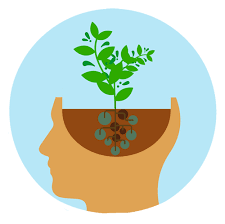
growth mindset
Moving Mountains
There is much talk of the need to have a Growth Mindset in order to learn. Dr Dwecks’ research into fixed and growth mindsets is 30 years old but still as current as ever; We can move metaphorical mountains if only we believe that we can. We need to believe that we are capable of doing a thing as the first step to being able to actively learn to do it.
The theory goes that we can identify a Fixed Mindset in ourselves when we say that ‘if someone else on my team can do that, then so can I’. Or when we say that we worry that people are judging our abilities. Perhaps it is true that these adopted statements betray our beliefs; that we aren’t willing to test our own potential independent of others, or that we think that there is an acceptable level of ability that we must reach; we are judged for our attainment and not for our effort.
Beliefs or systemic issues?
Its a good idea for sure, to identify our limiting beliefs, as a starting point to be able to think about what it might be like to put those aside and be free of our own tyranny when we approach learning a new skill.
But here’s the thing. I’m worried that this kind of cheer-leading coaching conversation (others coaching or talking ourselves up) misses some vital context. What if we know that, in our job, we are indeed being judged by our attainment and not our effort? There is an unapologetic culture of performance related pay in many industries. Similarly, once we’re past school days we’re rarely credited for effort alone (and even then, reward for effort is courageously given by teachers in defiance of the prevailing results bias of educational policy).
Measuring up
Perhaps we take a measure of learning against a person who has achieved the competency we desire - because we can then get an idea of the kind of commitment and focus that might be needed in order to become good. A ball park. Do I have sufficient drive or motivation to apply energy to learning this thing now? Copying is how we learn. Noticing allows us to determine rules of engagement and belonging. That seems not to be a fixed mindset, to me, but a pragmatic one.
I am what they term neuro-diverse, specifically, i’m autistic. I know that my own progress to date was not hindered for lack of a growth mindset. Not for lack of believing that something is possible or that even I might be capable of it, if only I could grasp the crux of it. There’s something else going on here. Neurological differences at the most primitive levels which have implications for our engagement with the world. Autistic people (there are a lot of us, perhaps even 1 in 60. Male and Female) are very often left as strangers in our own land, given singular responsibility for navigating what amount to breathtaking practical and cultural differences, and without a rule book to do it.
If you coach a fly in the brand of one dimensional growth mindset that says that you need to believe you can do it, then that fly is going to keep on going at that fixed glass pane. Observing, we can see that actual progression is going to demand something different. Its going to take someone else to open the window for the little guy, or shoo him around a different way. He’s going to get one serious headache if he keeps on with that determined forward focus.
Input needed…
Indeed my own frustrations have been around wanting to achieve. Wanting to grow, knowing it should be possible - that I do not lack intelligence - but finding myself consistently held up by that glass barrier (never yet mind the ceiling!) that I couldn’t see or understand. A communication style difference? A dearth of helpful feedback that might help me to refine strategy or technique - or to judge on that evidence that the issue is the others’ to correct. This difference is not an immediately obvious one to be categorised on a conscious level. But you’d better believe your subconscious has sniffed it out, sooner even than I can open my mouth to speak (there’s studies).
If that neuro-difference isn’t factored in to our coaching conversations then any reflection on a stuck-ness is missing so much information that might allow for growth around a problem where we cannot go through. Perhaps i’m missing the point here. We don’t have to actually move the mountain, its just as valid to step sideways.
If we ignore the impact of such societal barriers to ‘getting ahead’, then talk of mindset is meaningful in only the top eschelons of priviledge and leadership. Cheerlead me all you can and i’ll thank you for your kind thoughts and wishes. But until someone opens that damn window i’m struggling to fly anywhere.